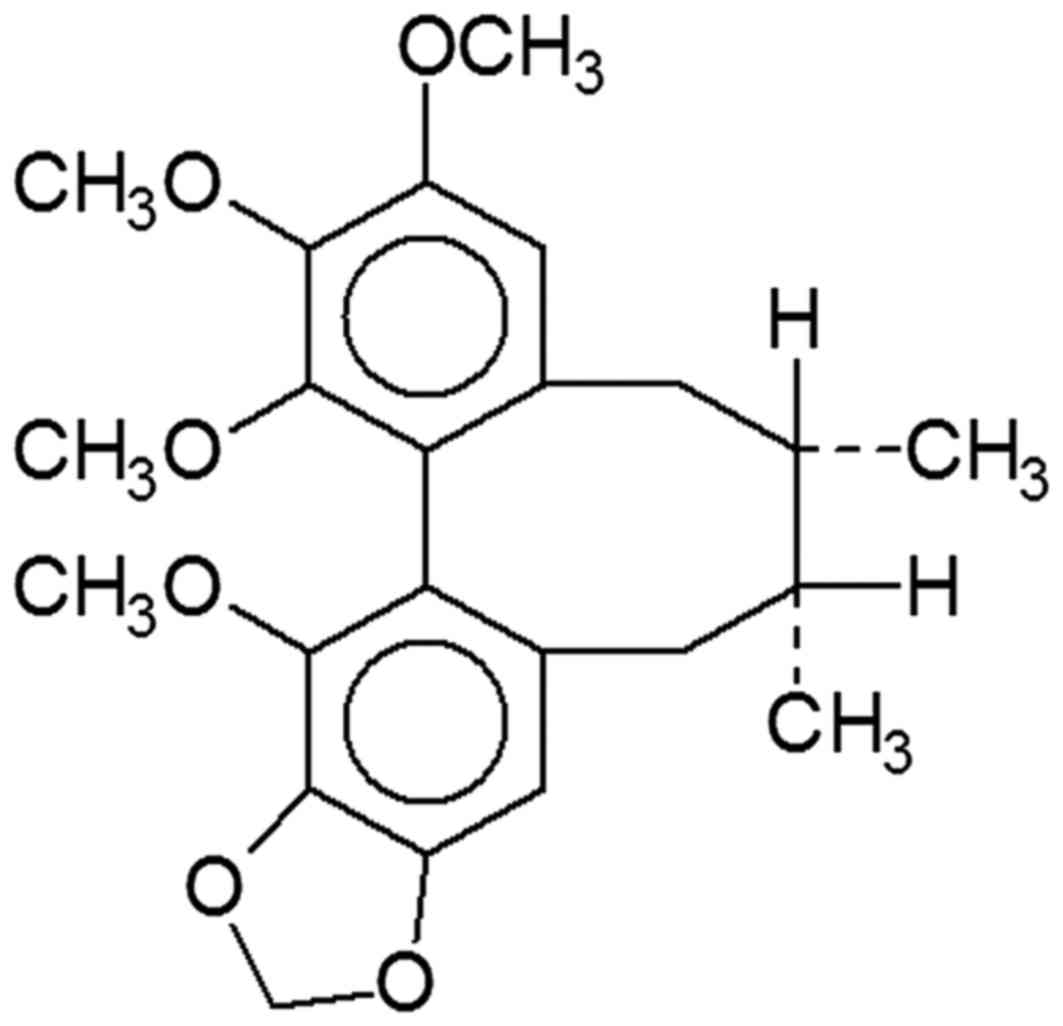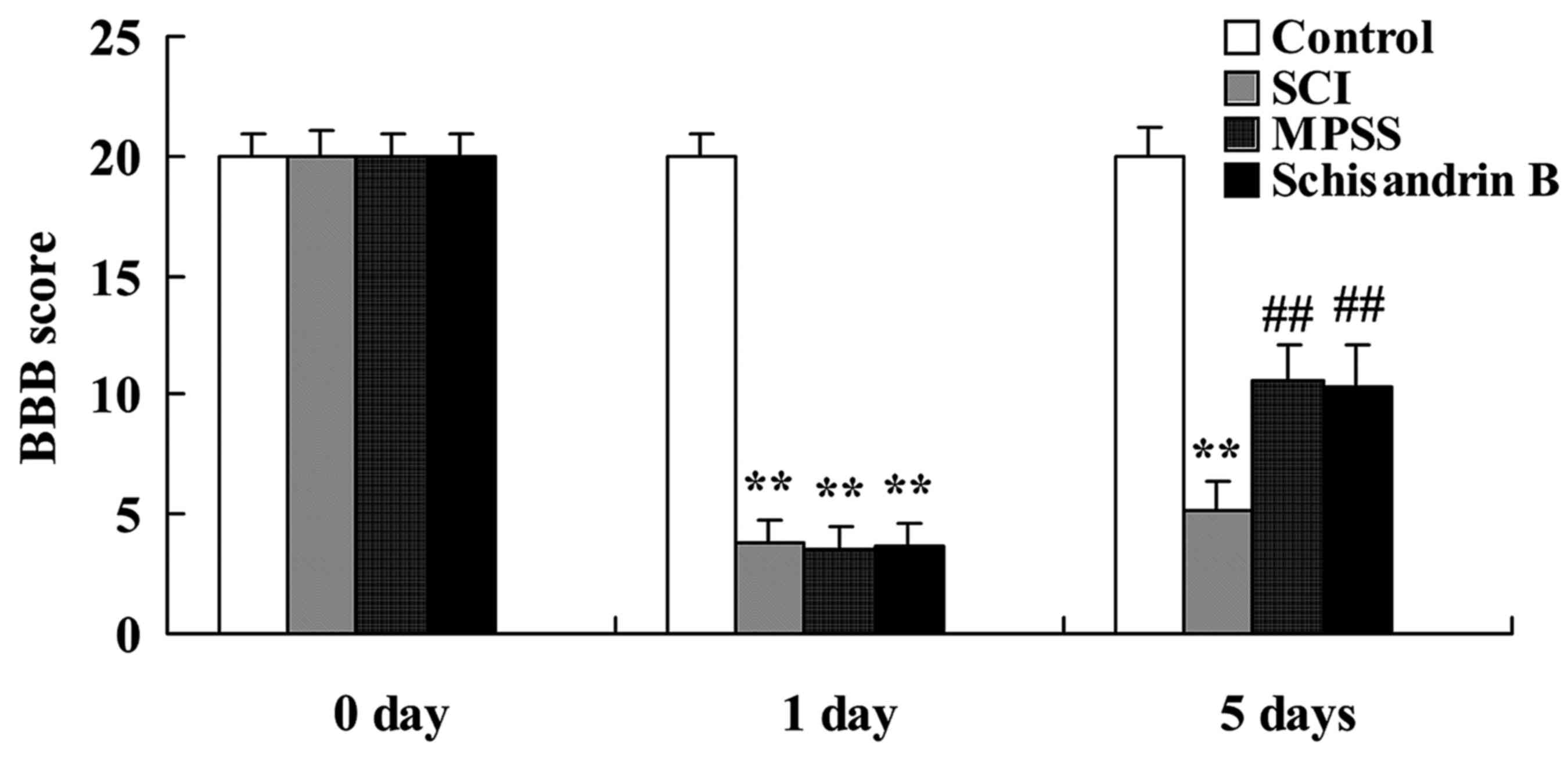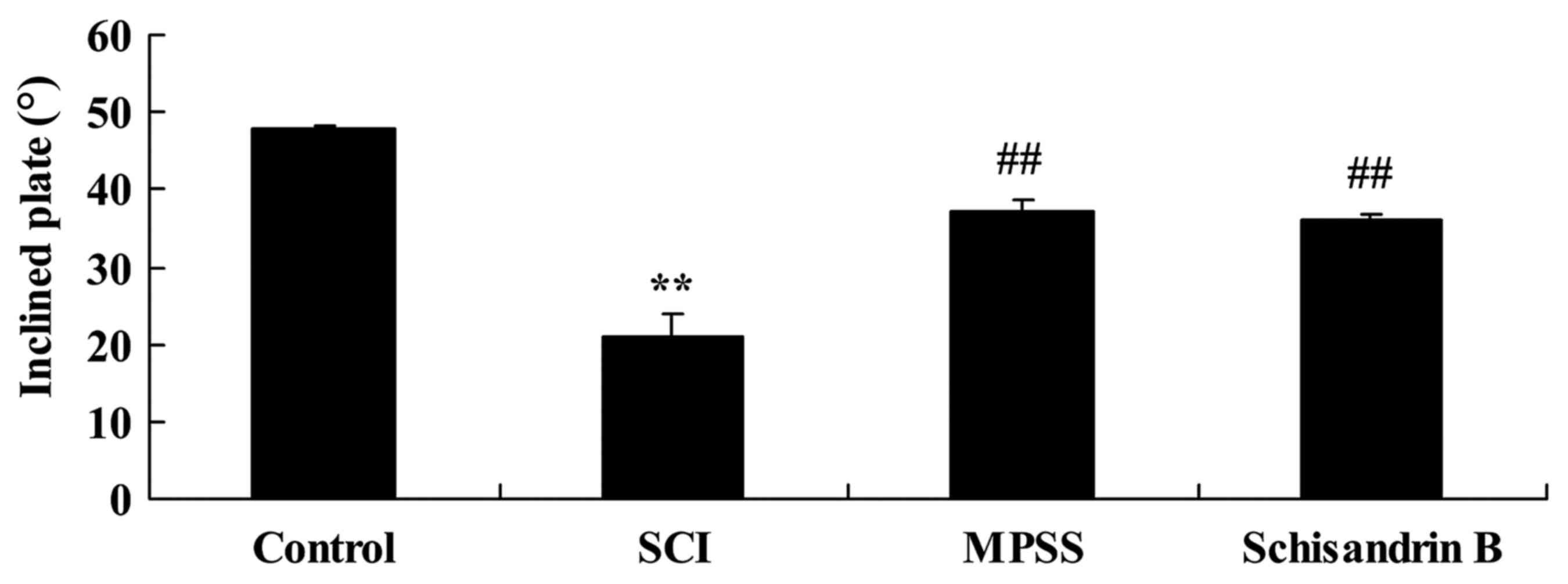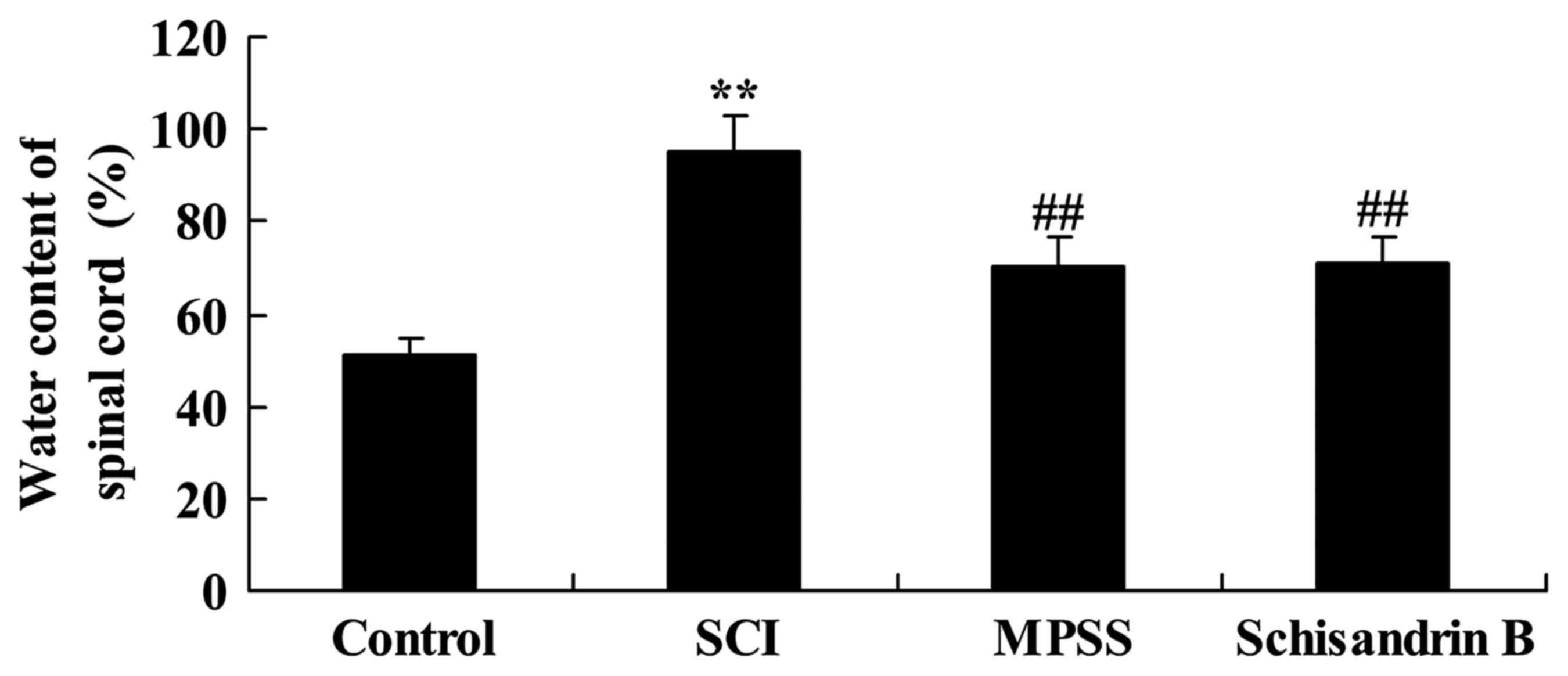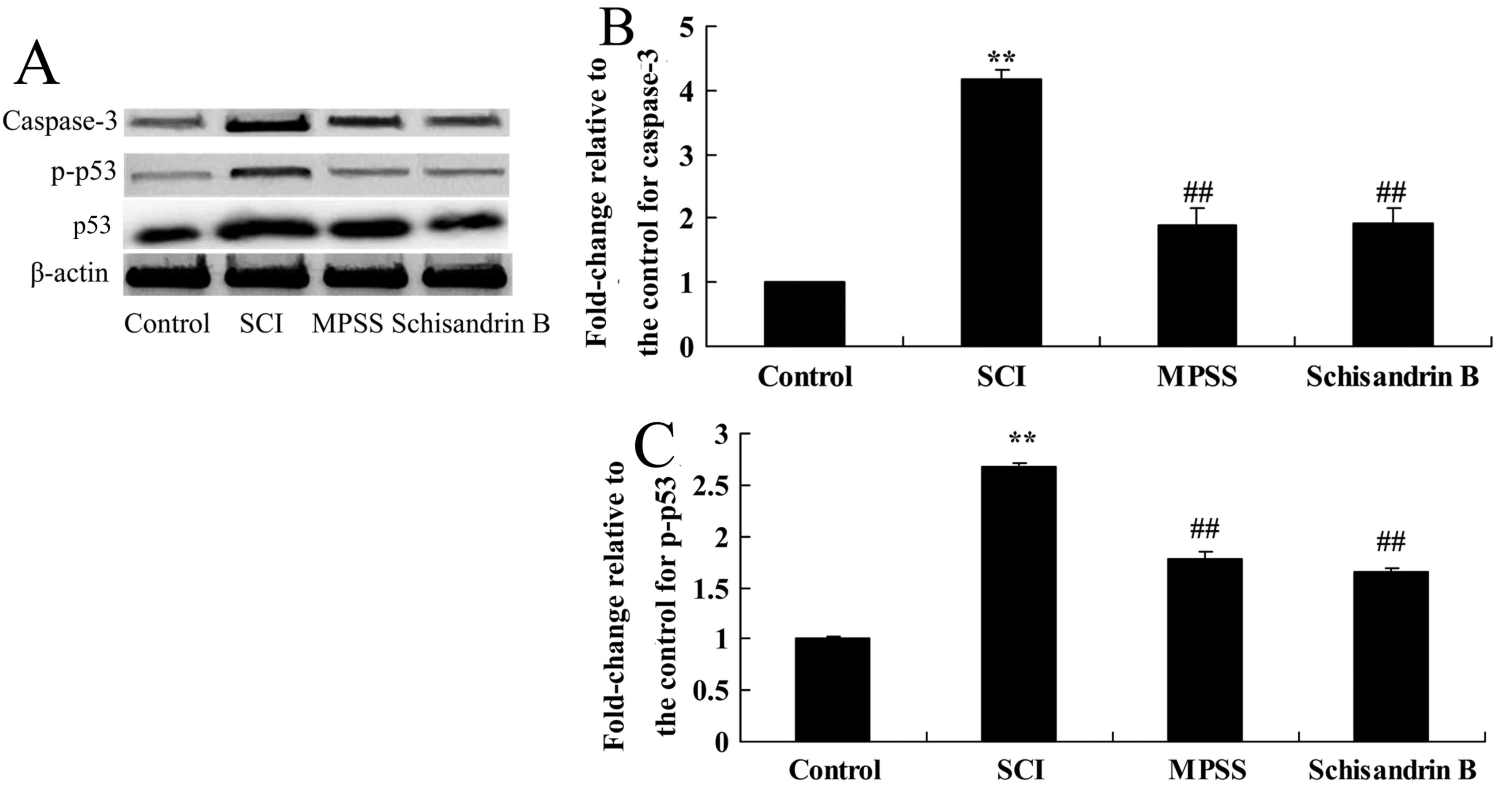|
1
|
Cristante AF, Filho Barros TE, Marcon RM,
Letaif OB and Rocha ID: Therapeutic approaches for spinal cord
injury. Clinics (Sao Paulo). 67:1219–1224. 2012. View Article : Google Scholar : PubMed/NCBI
|
|
2
|
Paula AA, Nicolau RA, Mde Lima O, Salgado
MA and Cogo JC: Low-intensity laser therapy effect on the recovery
of traumatic spinal cord injury. Lasers Med Sci. 29:1849–1859.
2014. View Article : Google Scholar : PubMed/NCBI
|
|
3
|
Chun S and Lee Y: ‘I am just thankful’:
The experience of gratitude following traumatic spinal cord injury.
Disabil Rehabil. 35:11–19. 2013. View Article : Google Scholar : PubMed/NCBI
|
|
4
|
Rahimi-Movaghar V, Niakan A, Haghnegahdar
A, Shahlaee A, Saadat S and Barzideh E: Early versus late surgical
decompression for traumatic thoracic/thoracolumbar (T1-L1) spinal
cord injured patients. Primary results of a randomized controlled
trial at one year follow-up. Neurosciences (Riyadh). 19:183–191.
2014.PubMed/NCBI
|
|
5
|
Chen N, Chiu PY and Ko KM: Schisandrin B
enhances cerebral mitochondrial antioxidant status and structural
integrity, and protects against cerebral ischemia/reperfusion
injury in rats. Biol Pharm Bull. 31:1387–1391. 2008. View Article : Google Scholar : PubMed/NCBI
|
|
6
|
Thandavarayan RA, Giridharan VV, Arumugam
S, Arumugam S, Suzuki K, Ko KM, Krishnamurthy P, Watanabe K and
Konishi T: Schisandrin B prevents doxorubicin induced cardiac
dysfunction by modulation of DNA damage, oxidative stress and
inflammation through inhibition of MAPK/p53 signaling. PLoS One.
10:e01192142015. View Article : Google Scholar : PubMed/NCBI
|
|
7
|
Gruner JA: A monitored contusion model of
spinal cord injury in the rat. J Neurotrauma. 9:123–128. 1992.
View Article : Google Scholar : PubMed/NCBI
|
|
8
|
Guo J, Li Y, He Z, Zhang B, Li Y, Hu J,
Han M, Xu Y, Li Y, Gu J, et al: Targeting endothelin receptors A
and B attenuates the inflammatory response and improves locomotor
function following spinal cord injury in mice. Int J Mol Med.
34:74–82. 2014.PubMed/NCBI
|
|
9
|
van Middendorp JJ, Barbagallo G, Schuetz M
and Hosman AJ: Design and rationale of a prospective, observational
European Multicenter Study on the efficacy of acute surgical
decompression after traumatic spinal cord injury: The SCI-POEM
study. Spinal Cord. 50:686–694. 2012. View Article : Google Scholar : PubMed/NCBI
|
|
10
|
Zhang D, Yue Y, Jiang S, Li A, Guo A, Wu
X, Xia X, Cheng H, Zhang J, Tao T and Gu X: GART expression in rat
spinal cord after injury and its role in inflammation. Brain Res.
1564:41–51. 2014. View Article : Google Scholar : PubMed/NCBI
|
|
11
|
Ni H, Jin W, Zhu T, Wang J, Yuan B, Jiang
J, Liang W and Ma Z: Curcumin modulates TLR4/NF-κB inflammatory
signaling pathway following traumatic spinal cord injury in rats. J
Spinal Cord Med. 38:199–206. 2015. View Article : Google Scholar : PubMed/NCBI
|
|
12
|
Tan J, Zhang F, Liang F, Wang Y, Li Z,
Yang J and Liu X: Protective effects of hyperbaric oxygen treatment
against spinal cord injury in rats via toll-like receptor 2/nuclear
factor-κB signaling. Int J Clin Exp Pathol. 7:1911–1919.
2014.PubMed/NCBI
|
|
13
|
Genovese T, Mazzon E, Crisafulli C, Di
Paola R, Muià C, Bramanti P and Cuzzocrea S: Immunomodulatory
effects of etanercept in an experimental model of spinal cord
injury. J Pharmacol Exp Ther. 316:1006–1016. 2006. View Article : Google Scholar : PubMed/NCBI
|
|
14
|
Giridharan VV, Thandavarayan RA, Bhilwade
HN, Ko KM, Watanabe K and Konishi T: Schisandrin B, attenuates
cisplatin-induced oxidative stress, genotoxicity and neurotoxicity
through modulating NF-κB pathway in mice. Free Radic Res. 46:50–60.
2012. View Article : Google Scholar : PubMed/NCBI
|
|
15
|
Ordonez FJ, Rosety MA, Camacho A, Rosety
I, Diaz AJ, Fornieles G, Bernardi M and Rosety-Rodriguez M:
Arm-cranking exercise reduced oxidative damage in adults with
chronic spinal cord injury. Arch Phys Med Rehabil. 94:2336–2341.
2013. View Article : Google Scholar : PubMed/NCBI
|
|
16
|
Kurtoglu T, Basoglu H, Ozkisacik EA, Cetin
NK, Tataroglu C, Yenisey C and Discigil B: Effects of cilostazol on
oxidative stress, systemic cytokine release, and spinal cord injury
in a rat model of transient aortic occlusion. Ann Vasc Surg.
28:479–488. 2014. View Article : Google Scholar : PubMed/NCBI
|
|
17
|
Juang CL, Yang FS, Hsieh MS, Tseng HY,
Chen SC and Wen HC: Investigation of anti-oxidative stress in vitro
and water apparent diffusion coefficient in MRI on rat after spinal
cord injury in vivo with Tithonia diversifolia ethanolic extracts
treatment. BMC Complement Altern Med. 14:4472014. View Article : Google Scholar : PubMed/NCBI
|
|
18
|
Zhang H, Wu F, Kong X, Yang J, Chen H,
Deng L, Cheng Y, Ye L, Zhu S, Zhang X, et al: Nerve growth factor
improves functional recovery by inhibiting endoplasmic reticulum
stress-induced neuronal apoptosis in rats with spinal cord injury.
J Transl Med. 12:1302014. View Article : Google Scholar : PubMed/NCBI
|
|
19
|
Ersahin M, Çevik Ö, Akakın D, Şener A,
Özbay L, Yegen BC and Şener G: Montelukast inhibits caspase-3
activity and ameliorates oxidative damage in the spinal cord and
urinary bladder of rats with spinal cord injury. Prostaglandins
Other Lipid Mediat. 99:131–139. 2012. View Article : Google Scholar : PubMed/NCBI
|
|
20
|
Springer JE, Azbill RD and Knapp PE:
Activation of the caspase-3 apoptotic cascade in traumatic spinal
cord injury. Nat Med. 5:943–946. 1999. View
Article : Google Scholar : PubMed/NCBI
|
|
21
|
Wang B and Wang XM: Schisandrin B protects
rat cortical neurons against Abeta1-42-induced neurotoxicity.
Pharmazie. 64:450–454. 2009.PubMed/NCBI
|
|
22
|
Chiu PY, Luk KF, Leung HY, Ng KM and Ko
KM: Schisandrin B stereoisomers protect against
hypoxia/reoxygenation-induced apoptosis and associated changes in
the Ca(2+)-induced mitochondrial permeability transition and
mitochondrial membrane potential in AML12 hepatocytes. Phytother
Res. 23:1592–1602. 2009. View
Article : Google Scholar : PubMed/NCBI
|
|
23
|
Floriddia EM, Rathore KI, Tedeschi A,
Quadrato G, Wuttke A, Lueckmann JM, Kigerl KA, Popovich PG and Di
Giovanni S: p53 Regulates the neuronal intrinsic and extrinsic
responses affecting the recovery of motor function following spinal
cord injury. J Neurosci. 32:13956–13970. 2012. View Article : Google Scholar : PubMed/NCBI
|
|
24
|
Chopp M, Chan PH, Hsu CY, Cheung ME and
Jacobs TP: DNA damage and repair in central nervous system injury:
National Institute of Neurological Disorders and Stroke Workshop
Summary. Stroke. 27:363–369. 1996. View Article : Google Scholar : PubMed/NCBI
|
|
25
|
Cai Y, Li J, Yang S, Li P, Zhang X and Liu
H: CIBZ, a novel BTB domain-containing protein, is involved in
mouse spinal cord injury via mitochondrial pathway independent of
p53 gene. PLoS One. 7:e331562012. View Article : Google Scholar : PubMed/NCBI
|















